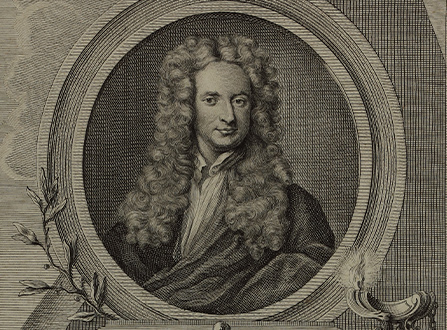Newton Manuscripts
The Newton Manuscripts at the National Library
Among the many manuscripts preserved at the National Library are works by the man considered to be the greatest physicist of all time, Sir Isaac Newton. Contrary to what one might expect to find amid Newton’s works, these papers cover topics such as interpretations of the Bible, theology, the history of ancient cultures, the Tabernacle and Temple, calculations dealing with the end of time, historical documents, and even alchemy.
The Digital Collection
These papers introduce facets of Newton’s personality and work that the public has never before encountered. They are evidence of the great lengths that Newton went to in trying to decipher writings that, in his opinion, contained secret knowledge encrypted in the Holy Scriptures of ancient cultures and in historical documents. A perfect exmple of this type of research are Newton’s efforts to produce knowledge of scientific significance from the Biblical and Talmudic descriptions of the Tabernacle and Temple.
Newton’s diligence and precision is reflected in this research in the same manner it is reflected in his scientific work, and he regarded this science with the same religious fervor that made him see himself as a kind of prophet.
The manuscripts found at the National Library are part of the collection of Abraham Shalom Yehuda (1877-1951), an expert in Middle Eastern affairs. Professor Yehuda purchased the manuscripts at a public auction at Sotheby’s of London in 1936. Other manuscripts in the collection, dealing mostly with the topic of alchemy, were purchased by the well-known economist, John Maynard Keynes, and are located at King’s College in Cambridge University.
The National Library’s collection of the Newton Papers is now available to the general public in digital format. All of the papers are also linked in the catalogue to the Newton Project, where they are presented in two versions: a ‘diplomatic’ version that includes all the changes and corrections as they appear in the original manuscript, and a normalized, i.e 'clean' version that enables a continuous reading of the text.
The digitization of this important collection of Newton manuscripts was made possible through the generous support and vision of the David and Fela Shapell Family Foundation.
This collection has been featured by Google Arts and Culture.

